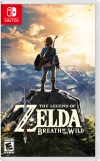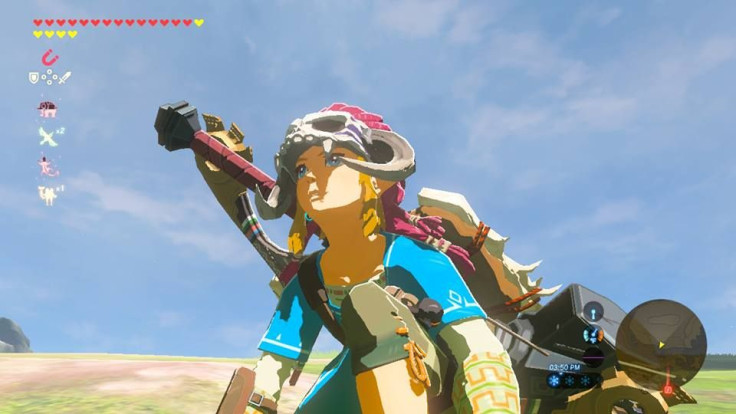For me, two series have long been the pinnacle of what open world games can do: Grand Theft Auto and Elder Scrolls. I’ve followed GTA from the beginning and Elder Scrolls from Morrowind on. Both are similar in that from the time they moved to 3D, the core experience changed very little. From both GTA 3 to GTA 5 and from Morrowind to Skyrim, each new iteration lived on two promises: better graphics and a new world. There were other small incremental improvements along the way like better gun lock-on in GTA and dragons in Elder Scrolls, but for the last 16 years, the open world formula has changed very little, even as the genre rose to such popularity it infected other series like Metal Gear Solid.
This started to wear on me without my even knowing it. I’d get a glassy eyes malaise about two thirds of the way through most open world games – my brain shut out the content and I just moved from yellow dot to yellow dot, killing what I needed to kill until something new came out and I forgot about it. It didn’t help that other open world titles mostly copied the the formula, with minor adjustments. A big innovation was adding enemy bases you had to reconquer to progress, but how many nearly randomly generated bases can you attack in Far Cry, Metal Gear Solid 5 or Assassin’s Creed before it all washes together. It started to feel that across all open world titles we were really playing the same three games for nearly two decades.
The good news is I think this period is coming to an end. In their owns ways, Witcher 3 and Breath of the Wild represent a leap forward for a stale genre. While what Witcher brings to the table is more of a progression of what other games were trying to do, it was such a leap forward that it bears mentioning. As many games strove to make their worlds bigger and fuller and more believable, they often were complimented by bland cut and paste npcs. The Far Cry and Assassin’s Creed series are particularly good examples of this, but the trend affected most open world games. To it’s credit, GTA has resisted this but did so by giving us cartoonish absurd characters that while better than “blah,” still rarely emotionally affect you. Witcher 3 blew this trend out of the water. Take a look at the Bloody Baron, for example, a minor lord who you help in the early game. A character that in any other game would be no more than a disgusting brute, yet in Witcher, he is a layered human. Monstrous at times, yet at others showing genuine kindness. We feel the weight of his own self-loathing and guilt and even if we hate him, we cannot help but feel sad when things turn south for him. I cannot think of an NPC in any open world game that was as rich, complicated and had such a powerful arc as the Bloody Baron (If I missed someone let me know what game because I’d love to play it). It’s also worth noting that the game isn’t even about him – he’s a random NPC who stays with you for only a few quests.
What CD Projekt RED realized is that you can code as many animals or vehicles as you want, but the thing that makes a world really feel full are the people. It also doesn’t hurt that Witcher’s world is as immersive in all the other common metrics as well. While we’re on Witcher, it’s also worth noting the winding and connecting nature of some of the quests is a small innovation that can feel very powerful. For example: how many of you separately met the Bloody Baron and what (you thought) were some random swamp witches before later learning these two storylines would meet? In this way, your discoveries feel connected to a larger ecosystem of life and this makes the world feel deep and truly lived in.
If Witcher marks an evolution of what has come before, Breath of the Wild for me is a revolution. Or rather a synthesis of lessons learned in the series over 30 years with the innovations in the open world genre. Sure you have the tower climbing of Assassin’s Creed and numerous other elements borrowed from other open world series, but what I want to talk about is something subtler. Breath of the Wild is powerful because the entire world is skillfully curated.
The hallmark metaphor for the genre has long been “the sandbox.” So over the years, we got many different sandboxes, but 16 years in a sandbox and you’re going to get bored. The core philosophy of the sandbox is to drop a bunch of stuff in and let the user play. So we had red sandboxes and blue sandboxes some with toy cars, some with toy horses, some with toy boats. But it all gets dull as the empowerment of getting to make my own fun grows old over the years. The experiences were so lightly curated that you would spend hours of monotony just for that one surprising powerful sandbox moment. Breath of the Wild is the first game that gave me both the thrill and excitement of exploring an open world combined with the engaging through-line of a well curated game.
The game achieved this by sculpting the very landscape itself to funnel you toward fun. It would require and deserve many more words to go into deep detail about this, but as you play Breath of the Wild, you start to notice that the shapes of the landscapes themselves urge you into directions that will bring you to exciting experiences. Whereas in Skyrim a random route up a mountain would probably lead you to nothing, Zelda will reward its players when they explore a small winding path up a cliff that caught their eye. Maybe it’s as simple as the slope of the land pushing you towards an interesting settlement, or a strange cliffside pass leading you to a powerful foe, either way, it creates countless moments of random excitement with every hour in the world. The goal of other open world games is to build a world that feels real because it is so vast, but the problem is in real life, sometimes it takes days or weeks to see some random amazing event while walking around. Video games can do better. Breath of the Wild so expertly melds freedom with curation of world to give users a sense of adventure and excitement that many haven’t felt since the dawn of gaming.
For me, these two games mark the next step forward for a genre that stalled out because of its success. I am thrilled to see how other series respond to these games. What will a post- Breath of the Wild Elder Scrolls title look like? I’m sure if Bethesda builds on the lessons of Witcher and Breath of the Wild, it will blow Skyrim out of the water. I look forward to this new era of open world games.


















